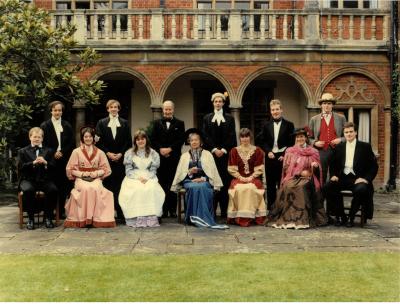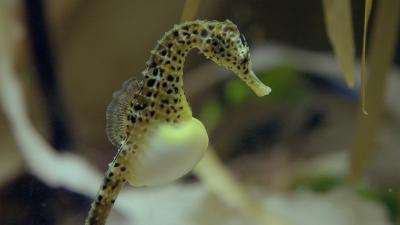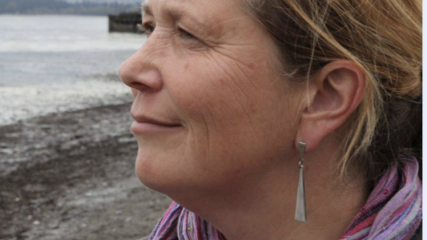Biologist and conservationist Dr Amanda Vincent to give Annual Oliver Rackham Lecture
The College is delighted this week to welcome back to College alumna Dr Amanda Vincent (m.1986), who will deliver the 2nd annual Oliver Rackham Lecture Saturday 20 April at 17.30 in the McCrum Theatre, 'From Seahorse Sex to Global Policy Change'.
Dr Amanda Vincent is originally from Vancouver, Canada and lived during her childhood in several South America countries. She did an undergraduate degree at the University of Western Ontario before spending "several years wandering around the world, mostly on a bicycle". Attending a behavioural ecology meeting in Australia she encountered the Cambridge zoologist Professor Tim Clutton-Brock, finding him 'inspirational'. After determining she wanted to do graduate work studying the evolution of sex differences, she managed to secure a place at Cambridge and, after spending a year at Darwin College, she joined Corpus for the remainder of her PhD.
Amanda lived at Leckhampton, where she shared a flat with Katharine (now Professor Baroness) Willis (m.1986), who recently gave the keynote speech at the Fortieth Anniversary of Women Weekend. She enjoyed rowing and participated in the Leckhampton Players, including in a production of Chekov's The Anniversary, which also featured Baroness Willis. In the photo at right, Amanda is in the front row, second from the right, and Kathy Willis is third from the left (Fellow of Corpus Professor Chris Howe is first on the left).
Although most of the research in Clutton-Brock's lab was on large mammals, Amanda was drawn to the little-studied seahorse, a quirky and charismatic marine animal with an extraordinary life cycle and unique method of reproduction.
Males seahorses are the only animals that carry and nourish their offspring; the female deposits eggs into the male's pouch where they remain until he gives birth to them. Amanda studied seahorses in tanks in the basement of the Zoology Department and then in the field in Australia (she was the first to study them underwater), making novel discoveries about seahorse reproduction, courting, pair-bonding, and other sex-related behaviours.
From seahorse biology to conservation
After graduating from Cambridge, Amanda began to investigate the international trade in seahorses, which led her to view them in a wider conservation context. Seahorse populations face many threats: they are collected and sold for aquariums, traditional medicines and souvenirs, they face habitat loss and degradation, and millions are incidentally caught by bottom trawling and other non-selective fishing practices.
Many marine animals face the same challenges, and Amanda recognised that, to be effective, conservation efforts need to cast a wide net that includes wildlife, habitat, people and policy. She also realised that the charisma and unusual sex life of seahorses could capture the public imagination, making them a charming symbol for marine life. In 1996, she co-founded Project Seahorse, an international team committed to conservation and sustainable use of the world’s coastal marine ecosystems. Now in its 28th year, and based at UBC and the Zoological Society of London, Project Seahorse works on six continents, where it focuses on developing sustainable conservation schemes in partnership with local communities, resource managers and policy decision-makers.
Amanda is recognised as one of the world's foremost authorities on seahorses and their relatives, as well as a leading conservationist. She is Chair of the International Union for Conservation of Nature SSC Seahorse, Pipefish and Seadragon Specialist Group and is also Chair of its Marine Conservation Committee. She held the Canada Research Chair in Marine Conservation at UBC, where she is based at the Institute for the Oceans and Fisheries and is a Professor in Marine Conservation.
Her work has won numerous awards including the Indianapolis Prize for Animal Conservation (2010 and 2016), and she was made a Fellow of the Royal Society of Canada in 2020. She was recently awarded the fifth Dawkins Prize for Conservation and Animal Welfare for her work in ocean conservation – including the study of seahorses. The prize is awarded by Balliol College, Oxford for outstanding research into ecology and behaviour of animals whose welfare may be endangered by human activity. Amanda will give the Dawkins Prize Lecture at the Museum of Natural History in Oxford on 23 April.



